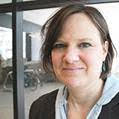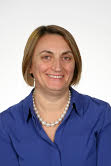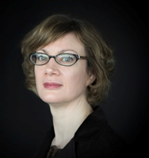The “Teaching Adult Learners Online Program” was developed at Ryerson University’s G. Raymond School of Continuing Education, by the Digital Education Strategies (DES) unit.
To provide context, here are a few brief stats with respect to online teaching and learning at the Chang School:
- 450 online courses
- 20,000 online enrollments annually
- 190+ online instructors per semester
Our Pain Point:
The DES unit at the Chang School, which is responsible for the development and delivery of online and distance courses, has spent many years continuously improving its approach to the development of high quality online course materials, in collaboration with Chang School instructors and faculty. In the past, much of the professional development for instructors of online and blended courses was understood to occur informally through the process of collaborative course development. Additionally, the DES unit often hosted, and continues to offer, “one-off”, face-to-face workshops focusing on various elements of online learning and technology. Chang School instructors are also welcome to attend similar workshops offered by Ryerson’s Learning and Teaching Office.
Over time, through examination of data from student surveys, DES recognized that while the quality of Chang School online course materials consistently receives high ratings for satisfaction, this has not been the case for instructor presence and interaction in online courses. With enrollments currently declining in many of Ryerson’s sister institutions across the province (Usher, 2014), DES takes seriously its responsibility to set up students and instructors for success. Ongoing research and needs assessment led the DES team to confirm the following:
- For many faculty, whose own formative education took place in traditional classrooms, teaching online is a completely new skill that must be purposefully developed (Vaill & Testori, 2012; Reilly, Vandenhouten, Gallagher-Lepak & Ralston-Berg, 2012)
- To ensure the ongoing success of the Chang School’s online and blended programs, a consistent offering of quality faculty development in online and blended teaching is necessary (Vaill & Testori, 2012; Reilly et al, 2012; Lackey, 2011)
- In the words of a participant in Lackey’s 2011 study “…learning how to teach online has become an obligation [emphasis added] among educators as students are being sent into a world filled with technology.” (p.19,)
Our Solution:
In consultation with the Chang School Teaching Chair, the DES unit developed and launched the TALO program as an offering to faculty, running as a four week course, at the beginning of every semester.
| Here, Leonora Zefi, Manager, e-Learning Initiatives and Course Development, DES, shares her thoughts on the vision for TALO:
|
Designed in keeping with current literature in the area, key features of the TALO model include:
- The program is cohort-based and fully facilitated to ensure that participants receive expert guidance and peer support throughout (Lackey, 2011; Vaill and Testori, 2012; Kukulska-Hulme, 2012)
- The program is delivered fully online, and places participants in the “shoes” of online students (Vaill & Testori, 2012)
- The program addresses issues of pedagogy as well as technology. (Vaill & Testori, 2012, BCcampus 2013) Each participant is provided with a learning management system (LMS) sandbox, to use as a low stakes testing ground for their learning as they make their way through the course (Herman, 2012)
- The program materials employ a variety of media as well as leading open resources such as CU Open, in order to model quality course design (Vaill & Testori, 2012), and demonstrate for faculty the strategic use of re-usable and adaptable resources (Carey, 2014)
- To receive a Recognition of Completion, participants must contribute to ongoing class discussions and submit two assignments in which they have actively applied their learning.(Vaill & Testori, 2012)
Early and promising results:
Since September 2014, the TALO has run four times (once per semester), with over 70 Chang School instructors successfully completing the program.
Conference presentations on the program have been very positively received at events including, but not limited to: The Ryerson Faculty Conference 2014, Ontario Council for Lifelong Learning (OCULL) Annual Retreat 2014, and the 26th International Council for Distance Education (ICDE) World Conference (2015).
TALO has even been called out by online learning thought leader Tony Bates, in a recent blog post on the DES team’s work.
| Here are some thoughts from a member of the TALO alumni, Gina Alexandris, Director, Law Practice Program, Ryerson University.
On the materials and seeing the learner’s perspective: On completing the assignments and receiving feedback:
Once again, we hear from, Leonora Zefi, Manager, e-Learning Initiatives and Course Development, DES, as she reports on TALO outcomes: |
The TALO Team:
Maureen Glynn, MPhil, Current TALO Project Lead, TALO Co-Developer, and TALO Co-Facilitator: In her role as Instructional Designer with Digital Education Strategies at The G.Raymond Chang School of Continuing Education, Ryerson University, Maureen has supported the development of over 40 online courses across 5 program areas. She holds an MPhil in Criminology from Cambridge University, a BA (Hons) in History from McGill University and is currently completing her Graduate Certificate in Technology Based Distributed Learning at the University of British Columbia. Most recently, Maureen has served as the lead Instructional Designer for Ryerson’s Law Practice Program.
Leonora Zefi, MET, Manager, e-Learning Initiatives and Course Development, DES: Leonora has extensive experience in design, instruction, and evaluation of online and blended learning. In her current role, Leonora leads a team of Instructional Designers and coordinates with academic directors and other internal stakeholders to recommend and oversee the implementation of relevant and in-demand offerings that align with student needs and institutional strategic priorities. Leonora has held various roles including curriculum design and evaluation, non-profit management, instruction and facilitation in the area of intercultural communication and teaching strategies at both university and college levels. She holds a Master Degree in Educational Technology and Bachelor of Education in Adult Education and is passionate about learning and teaching.
Linda Koechli, PhD, Program Director, Business, and Teaching Chair, The Chang School: Passionate about lifelong learning, Linda provides leadership in making relevant, career-related programs available to working professionals. To achieve this goal, she works with academic departments at the Ted Rogers School of Management, Ryerson University to develop and deliver curriculum in a variety of forms, including certificate programs, degree-laddering programs, professional development course series, degree and non-degree credit courses, workshops, seminars and online programs. Linda also collaborates with external stakeholders to provide customized training programs for specific groups of learners. Linda is also currently The Chang School Teaching Chair. In this role, she provides leadership in fostering high quality teaching and learning within the School. She has 20 years’ experience training faculty in pedagogical best practices and since 2005 has focused on online teaching. Previously a manager with The Chang School’s Digital Education Strategies team, she played an integral role in establishing The Chang School as a leader in online education in Canada.
What’s Next for TALO?
Based on the outcomes they have achieved with their own faculty, the TALO team strongly believes in growing this enterprise out, as a strategic venture, through collaboration and cooperation with our colleagues at other Ontario institutions. Read on to find the answers to Why TALO? Why now?


